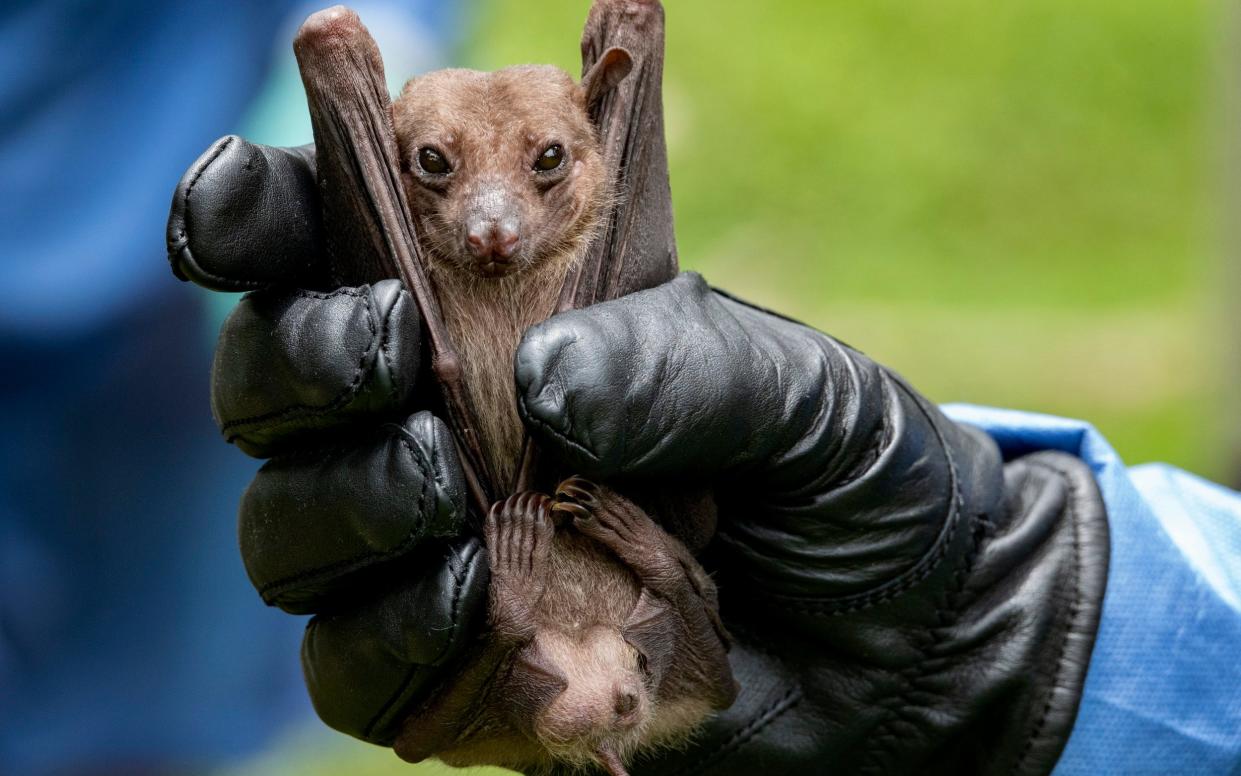Marburg outbreak in Equatorial Guinea spreads from rural districts to major port

An outbreak of the deadly Marburg virus in Equatorial Guinea has spread from rural districts to the main port of the African nation, increasing the risk of further transmission as the disease reaches densely populated areas and transport hubs.
At least four cases have now been detected in the city of Bata, which has a population of around 200,000 people and links to several neighbouring countries.
Marburg spreads to humans from fruit bats and is transmitted through direct contact with the bodily fluids of infected patients. The disease, which is similar to Ebola, kills up to 88 per cent of those it infects.
The outbreak in Equatorial Guinea, in Central Africa, is already thought to be the fourth largest ever recorded.
The World Health Organisation (WHO) last week said there had been nine laboratory confirmed cases: seven have died while the remaining two are undergoing treatment.
Authorities have also identified 20 suspected cases, all of whom are now dead.
Travel warning
Tanzania last week also recorded its first ever outbreak of Marburg virus. Epidemiologists are testing viral sequences to see if the Equatorial Guinea and Tanzania outbreaks might be connected, even though they are 2,000 miles apart.
Mitoha Ondo Ayecaba, the health minister for Equatorial Guinea, told local media the virus had reached Bata because of people breaking quarantine in the town of Ebibeyin, in Kie-Ntem province.
Thousands were reported to have been placed under quarantine restrictions when Kie-Ntem recorded the first suspected Marburg cases earlier this year.
An alert by the American embassy in Equatorial Guinea said: “There has now been a total of four confirmed cases in Bata, as well as two suspected cases linked to [the central town of] Evinayong.”
The embassy advised Americans against “non-essential travel to Bata and the mainland region” until the WHO and health ministry had declared an end to the crisis.
Medical experts had already warned last week that the risk of the virus spreading further would increase significantly if it managed to reach a city.
Teresa Lambe, Professor of Vaccinology and Immunology at Oxford's Pandemic Sciences Institute, said: “Although Marburg virus has recently been detected in rural Tanzania and Equatorial Guinea, the spread of this deadly virus into a heavily populated city is very concerning."
Bata is the second largest in the country after the capital, Malabo, but often referred to as the country’s commercial hub.
The city has one of the deepest seaports in the region and major exports are timber and coffee.
The international airport at Bata also has direct flights to several cities, including to neighbouring Gabon and Cameroon.
The Marburg virus is in the same filovirus family as Ebola and causes similar symptoms.
Infections start with fever, headaches and fatigue. They can then go on to haemorrhage and bleed from bodily orifices.
There are no approved vaccines or antiviral treatments, but good quality medical care greatly improves survival rates.
Protect yourself and your family by learning more about Global Health Security

